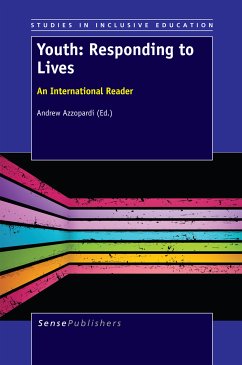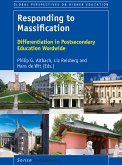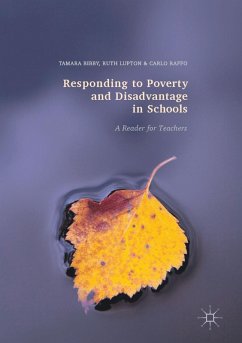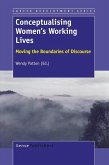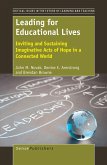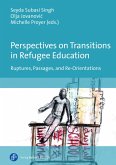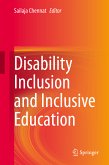This book draws from various fields of knowledge, in an effort to theorise, create new and innovative conceptual platforms and develop further the hybrid idea of discourses around social inclusion and youth (from policy, practice and research perspectives). Youth: Responding to lives - An international handbook attempts to fill the persistent gap in the problematisation and understanding of inclusion, communalism, citizenship - that are intertwined within the complex youth debate. It writhes and wriggles to highlight the interconnections between the encounters, events and endeavors in young people's lives. The focus of this edited work is also intended to help us understand how young people shape their development, involvement, and visibility as socio-political actors within their communities. It is this speckled experience of youth that remains one of the most electrifying stages in a community's lifecycle. Contributors to this text have engaged with notions around identity and change, involvement, social behavior, community cohesion, politics and social activism. The chapters offer an array of critical perspectives on social policies and the broad realm of social inclusion/exclusion and how it affects young people. This book essentially analyses equal opportunities and its allied concepts, including inequality, inequity, disadvantage and diversity that have been studied extensively across all disciplines of social sciences and humanities but now need a youth studies 'application'.
Dieser Download kann aus rechtlichen Gründen nur mit Rechnungsadresse in A, B, BG, CY, CZ, D, DK, EW, E, FIN, F, GR, HR, H, IRL, I, LT, L, LR, M, NL, PL, P, R, S, SLO, SK ausgeliefert werden.

